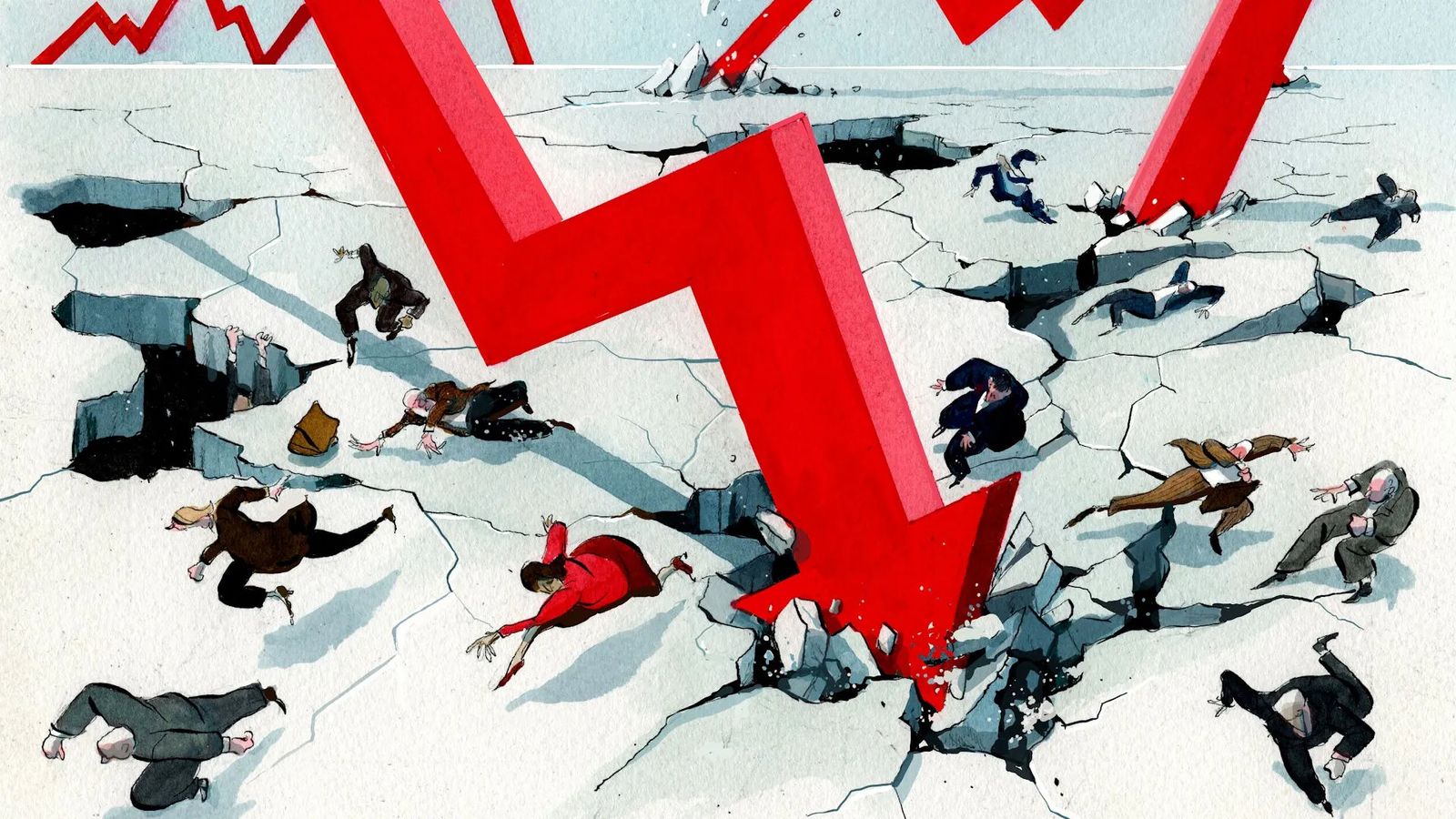The FTSE-100 is up by a couple of hundred points. Germany’s DAX has added 400 points, and in Tokyo the Nikkei 225 rose by 6 per cent overnight. After the wild trading ever since President Trump announced the imposition of huge tariffs on all of America’s major trading partners, some stability appears to have returned to the financial markets. Is the worst of the slump over? It is far too early to predict that with any confidence – but there are two reasons for thinking it might be.
It remains to be seen how the markets unfold over the next few days. There could well be a bankruptcy or two among some of the hedge funds, one of the crypto currencies may implode, or a bank could run into trouble, and if there are any signs of that kind of stress the market will plunge all over again. For the moment, however, investors have calmed down, and equity prices have stopped falling.
Can that hold? There are two reasons for thinking it might. First, we have just been through a major correction in prices. Over the last four days, the S&P 500 fell by 10 per cent. As a two-day fall, it was the worst performance by the index since the second world war, as bad as the 1987 rout, the financial crash of 2008, and the Covid panic of 2020. By any measure, this was a huge fall in share prices, and one that was as large, especially over such a short time, as many of the major crashes in financial history. It was just as bad on this side of the Atlantic, with Britain’s FTSE-100 down by almost 10 per cent along with a similar fall for Germany’s DAX. Equities are now so much cheaper than they were last week that they are starting to look like better value. Next, the markets started to rally yesterday without any sign of significant concessions from President Trump. Sure, there were reports of a 90-day suspension of the tariffs that turned out to be what he would no doubt call ‘fake news’. For now, however, the markets have stabilised without the White House changing its policies. That too is a sign the market has started to steady.
In reality, a 10 to 15 per cent correction to allow for the new tariff regime makes sense. Global companies will find it harder to make money under the new rules, and they will have to invest a lot to reconfigure their supply chains. That will mean lower profits, and that in turn means equities are worth less. And yet, it is not the end of the world.
The economy will adjust as it does to most of the shocks that are thrown at it. As the old Wall Street saying has it ‘nobody rings a bell at the bottom of the market’. We won’t know for sure until the end of the summer whether this week was just a pause for breath. For now, however, the worst could be over.







Comments